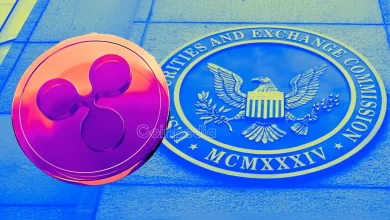
Nigerian court orders Binance to give user data to anti-graft agency (EFCC) who suspect illegal activity is weakening the Nigerian Naira.
EFCC claims Binance is used for money laundering, terrorism financing, and manipulating currency.
Nigerian government wants to regulate crypto and previously requested top user data.
In a significant development, a Nigerian High Court has ordered Binance Holdings, a major cryptocurrency exchange, to hand over detailed information about Nigerian traders using its platform. This move follows allegations of the platform’s involvement in the devaluation of the Nigerian Naira.
Here are the nitty-gritty details.
Legal Action Against Binance
The Economic and Financial Crimes Commission (EFCC) took legal action against Binance through an ex parte motion, a legal move where only one party is present, denying the opposing side prior notice and the opportunity to present a counterargument.
Representing the anti-graft agency, lawyer Ekele Iheanacho argued that Binance’s operations in Nigeria raised suspicions of criminal activity. In support of this claim, EFCC operative Hamma Bello submitted an affidavit citing concerns over alleged money laundering and terrorism financing associated with the platform.
Also Read: Binance Ordered To Give Away All Nigerians Trading on its Platform: Nigerian Court Orders
Uncovering Illegal Activities
EFCC investigators discovered illicit activities on the cryptocurrency platform, including price manipulation and market distortions. These activities, they asserted, significantly impacted the foreign exchange market, leading to the devaluation of the Naira against other currencies. Consequently, Binance removed the Nigerian Naira from its trading platform.
In response, the Nigerian government demanded crucial information from Binance, including details of its top 100 local users and six-month transaction records. Authorities argued that Binance’s operations hindered efforts to stabilize the national currency.
Perspectives on the Court Order
Nathaniel Luz, CEO of Flincap, views the court order as a positive step for the Nigerian government but suggests diplomatic dialogue between Binance and authorities. Conversely, Bayo Onanuga, the presidential adviser on information and strategy, advocates for banning platforms like Binance in the country.
Read More: Binance Tackles Insider Trading Allegations as BOME Coin Soars 40x on Listing
Crackdown on Crypto
Nigeria has intensified its crackdown on the crypto industry, citing concerns over illegal capital outflows contributing to the Naira’s depreciation against the dollar. Notably, authorities have targeted Binance, seeking $10 billion in penalties for facilitating $26 billion in untraceable funds.
Two foreign Binance executives remain detained in Nigeria amidst ongoing investigations.
The court’s order marks a significant moment in the Nigerian government’s efforts to regulate the cryptocurrency sector and combat financial crimes. However, the outcome of this legal battle and its implications for both Binance and Nigerian traders remain uncertain.






